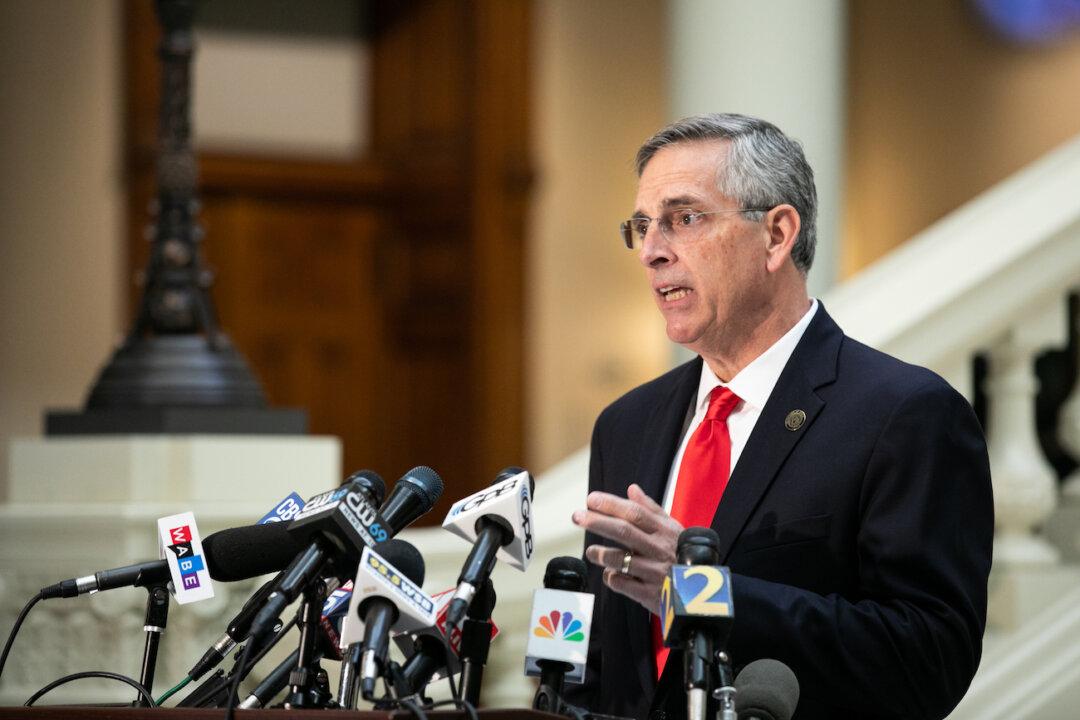Georgia Secretary of State Brad Raffensperger said Thursday he has referred three counties to be investigated for failing to complete and retain absentee ballot transfer forms, a legal requirement for regions that used ballot drop boxes in the November election.
Raffensperger said in a press release that 120 Georgia counties “filled out and retained ballot transfer forms in accordance with Georgia rules,” but three counties—Coffee, Grady, and Taylor—did not.





